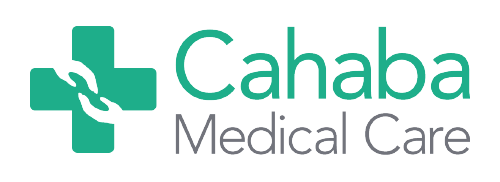Erika's Story: Part 1
“Tenemos que salir adelante.”
The story of one family’s resilience and how Cahaba walked alongside them
Born and raised in Tamazula, Mexico, Osbaldo Herrera lost his father at the age of eight and became the primary breadwinner for his family. At sixteen, he decided to move to the United States, alone, in search of work - in search of a better future for himself and for his family.
Five years later, twenty year-old Erika Velasquez made the same brave jump - to come to the United States in search of opportunity. “It was hard,” she says. “So hard. And stressful. After three months I already wanted to go back home. I had to endure a lot to be here.”
Erika and Osbaldo had been good friends back home in Mexico, and their friendship eventually blossomed into a relationship, even from opposite sides of the border. Today, they’ve been together for eighteen years, have two children (a son, seventeen, and a daughter, nine) and are expecting their third child. Osbaldo works as a mechanic and Erika had been working in a restaurant until she got further along in her pregnancy and had to stay home to rest.
But it took years for Alabama to feel like home. In addition to having to adjust to life in a new country, new culture, and new language, and on top of concerns about family back home, where they were going to live, how they would put bread on the table, and their first baby on the way, a concern always lingered in the back of Erika’s mind: what if we get sick, or there’s an accident? Where will we go?
“Here, it’s harder to go to the doctor, the hospital, or the emergency room, because they charge you a lot.” Emergency room visits can rack up the bills, but the high cost of primary care for the uninsured poses a cyclical barrier to accessing the preventive care that helps keep them out of the emergency room in the first place.
One day, the unimaginable happened. Osbaldo fell from a 9-story building and one of his legs was crushed. He was sent to the hospital, and once he came back home, it was a long road to recovery. Not only was he in pain from the fall, he also began to suffer from severe depression. “He was in so much pain,” Erika remembers. “I had to help him do everything - stand, walk, everything. But I told him, you have to take care of yourself. You have to move forward.”
Seeking Care
In 2016, years after her husband’s accident, Erika Velasquez got sick and had heard that there was a clinic called Cahaba Medical Care that didn’t require health insurance and had Spanish interpreters. She established care with her first-ever primary care provider and now comes to us for her prenatal care, dental care, help with emergency Medicaid enrollment, behavioral health counseling, and more.
Since then, she’s come to know the importance of preventive care. “I say that it’s better to come get checked. I have a friend that I always tell to come to the clinic because she has high blood pressure. But she doesn’t want to. I tell her, ‘They’re not going to charge you a lot there.’ And sometimes I‘ll even make her an appointment, but she always misses it.”
According to The Atlantic, “more than one-fourth of Latino adults in the United States lack a usual healthcare provider and almost half of Latinos never visit a medical professional during the course of the year” (Machado, 2014). However, only an estimated one-third of Latinos lack health insurance. So besides affordability, what is it that prevents this population from seeking care?
Journalist Amanda Machado suggests it’s cultural: “As a Latina growing up in a middle-class immigrant Mexican and Ecuadorian family, I saw Latinos who had the privilege of steady income, education, and familiarity with the English language still feel hesitant about receiving healthcare…It also partially derives from a long history of preferring non-Western medicine, a cultural uneasiness with the American style of healthcare, and a tradition of privacy and individual pride that makes many Latinos believe we have no need to ask for help” (2014).
But Erika had experienced for herself the value of primary care at Cahaba and makes sure to take her children to all their well child checks. Many times, she explained, it’s the men that don’t want to go to the doctor. “Even when [my husband] got COVID, he protested. But I told him, ‘You have to take care of yourself, because you’re worth it. You have to move forward.’”
No Matter Who You Are
Here at Cahaba, we take care of patients just like Erika every day. Many have recently fled their home country in search of a better life for their children. Others have known the United States nearly their whole life but still find themselves on the margins of society because of discrimination, language barriers, or socioeconomic status.
But we are driven by the conviction that quality care should be easily accessible to you regardless of where you come from, the color of your skin, or how much money you have.
For any patient that walks through the doors of one of our 20 health centers, we are committed to taking care of them, regardless of their ability to pay. In order to do so, we must receive funding from grants and other donors. If you would like to learn more about how you can be part of making sure people like Erika and Osbaldo are able to receive high quality primary care, visit www.cahabamedicalcare.com/donate and make sure to subscribe to our monthly newsletter below.

